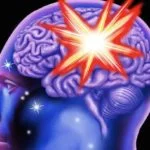Strength is a relative term while coming to the physical or mental level. It depends upon many factors. A person with obesity may not be strong enough to lift heavy weights but a slim woman will do such works very easily. It is more like a habit than body weight or height.
In the same way, mental strength might not depend upon age or sex, or even experiences. It is not always the way people express it, there may be a veil covering weakness, too. It is the way of nature, to give hurdles and obstacles in our path. Not only humans but all plants and animals also have enemies and problems from time to time.

We all have studied the theory of natural selection and survival of the fittest. It is the same in our case, too. Despite the environment and surroundings, it is our need to be strong to face the situation, be it physical or mental. It is natural, strong people adapt and get along, where weak ones fail and disappear.
A person may feel physically weak due to many reasons, ranging from lack of nutrition like calcium deficiency to chronic disease conditions such as cancer. Emotional weakness can be a personality trait or because of some traumatic incident in life such as physical abuse.
In either way, it is seldom considered as a medical condition or sought medical help. In some conditions, intake of vitamin B supplements, mood stabilisers, or mood enhancers will help.
Finding strength, the Ayurvedic way
The age-old Indian traditional medicinal science, Ayurveda literally means the science of life. It gives equal or more importance to the maintenance of the health of a healthy person. Diseases and treatments with herbal formulations are elaborated but many measures are explained to gain and maintain positive health.
Ayurveda does not see body and mind as separate entities but as interconnected and interdependent. There is a beautiful simile saying that the Body and mind are like ghee kept in a metal pot. The body is the pot and the mind being the ghee, symbolically. When anyone is heated up, the other also becomes hot.
This is the same in the case of body and mind. When the body is hurt, the mind is affected, and vice versa. This beautifully explains the conditions we call psychosomatic disorders today.
Ayurveda believes in the hereditary factors which include the person’s body and mind, to an extent. It is impossible to completely change a person’s body constitution or emotional quotient.
But maintaining the fullness and balance of dhatus or bodily tissues along with thridoshas or basic functional units in the body can help to improve the strength of the person altogether.
In the first row, Ayurveda gives a detailed narration of an ideal routine for a healthy life, including daily routine, seasonal regimens, preventive measures, and good social relationships.
Daily routine or Dinacharya
This is to be followed by a healthy adult individual without any disease. It starts right from waking up in the morning. Ayurvedic way of living follows the circadian rhythm. As we know it today, enzymes, hormones and many other chemicals in the body functions according to the Sun’s course.
Ayurveda strictly says the healthy person should wake up in Braahma muhoorta (before sunrise). He should make sure that the food he ate the last night has digested well before getting up from the bed. This seemingly simple step helps the person from getting deposited with metabolic waste products.
After waking up and passing the bowels, oral hygiene and bath are explained. In oral care, herbal combinations and utensils for brushing, tongue scraping, etc are elaborated. Gargling and mouthwash are to be done with sesame oil or medicated oil for the health of teeth and the oral cavity.
Nasal drops, daily oil massage on body and head, exercise, etc are elaborated. Exercise is to be done, up to half of the physical strength to keep your body healthy and strong. The benefits of each of these parts of the daily routine are detailed in Ayurveda texts.
Seasonal regimen or Ritucharya
Ayurveda explains the relationship with our body and changing seasons in a detailed aspect. Ayurvedic classics has a whole chapter describing six seasons in detail. Changes in the external environment, the human body and the measures to be taken are explained in detail. It is said that our physical strength varies in various seasons.
The physical strength of the person will be least in summer & rainy seasons whereas he will be in his best strength in the autumn (pre-winter) season. Digestive power also varies and the diet regimen is detailed accordingly. Following the advice in seasonal regimen in Ayurveda helps to avoid diseases and to improve physical strength.
Ayurveda suggests that the days in between the seasons make people vulnerable. So slow shifting from one regimen to the next along with timely cleansing therapies will keep the person strong.
Ideal way of living or Sadvruttha
Sadvrutta includes a list or narration of the ideal code of conduct to be followed by a healthy individual. It includes the social and behavioural aspects. All these affect the person’s mindset and hormone levels.
As we have explored the action of neurotransmitters in modern times, Ayurveda found out the effect of good deeds & behaviour on physical and mental health. Sadvrutta helps an individual from doing good things and refrain from bad deeds. Some of the advice and directions in Sadvrutta are.
- Be open-minded and independent while taking decisions. Do not follow prejudices.
- Do not believe or suspect each person you meet.
- Be the first one to start a conversation.
- Follow the righteous ways and leaders.
- Be a good host with hospitality.
- Keep yourself from bad deeds or sins enlisted as 10 sins like thievery.
- Observe victory and failure with a balanced mind. Avoid extremes of emotions.
There is a long list of instructions and advice to be followed for living a healthy and happy life.






